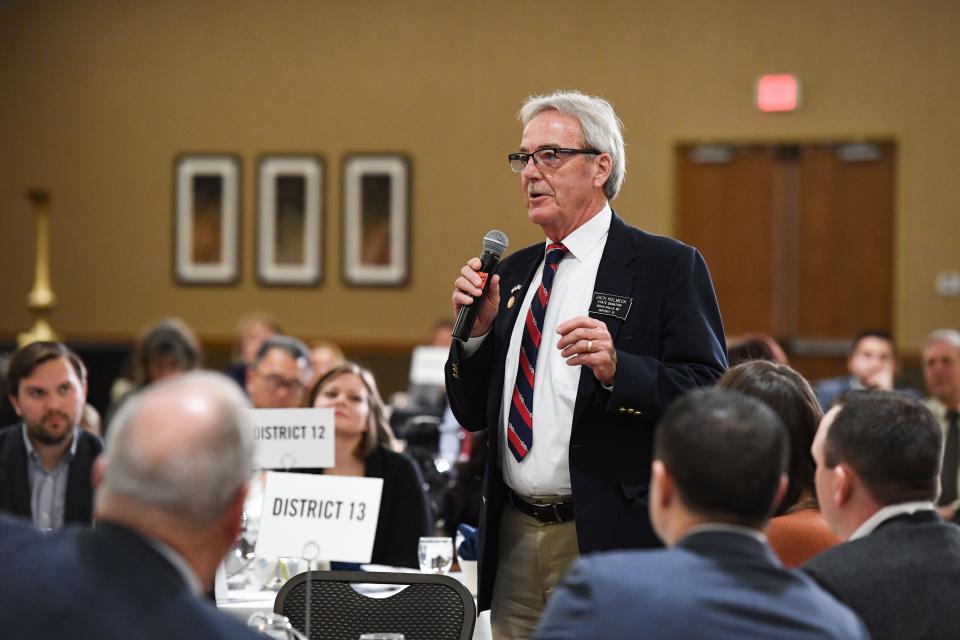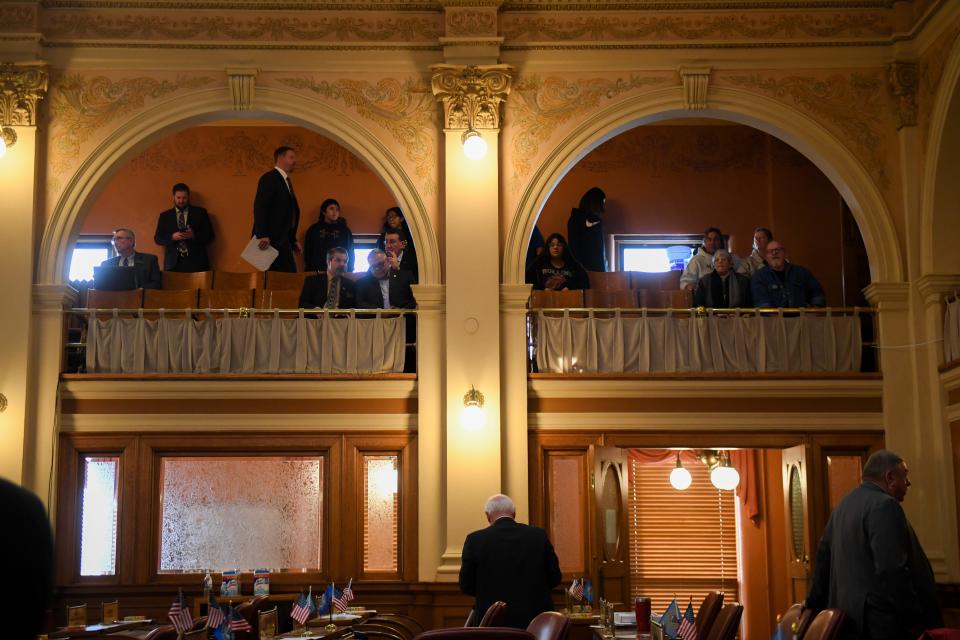South Dakota lawmakers propose bill that would cap homeowners’ property tax assessments at 3%
Two lawmakers are looking to give South Dakota homeowners a form of property tax relief with a bill expected to be introduced during the 2024 Legislative session, which starts on Jan. 9 in Pierre.
Sen. Jack Kolbeck, R-Sioux Falls, and Rep. Trish Ladner, R-Rapid City, have come up with a proposal that would place a 3% cap on the yearly growth of the assessed value of a single-family home. It’s the newest proposal from the duo, who’ve spent the last two legislative sessions tackling property taxes so South Dakotans can find relief.
“I know there’s an awful lot of people that are concerned with the evaluations of our family owned homes,” Kolbeck said.

And while property tax assessments have skyrocketed since the COVID-19 pandemic because of an influx of people to the state and higher demand for houses, experts say capping property value assessments could have unintended consequences in the future.
Why have assessments increased so much?
It’s no secret property tax assessments have risen dramatically the past three years since the start of the COVID-19 pandemic.
In Minnehaha County, the average county-wide property tax assessment increase was 14.4% for fiscal years 2023-2024, according to Chris Lilla, the Minnehaha County Director of Equalization. That’s 4% lower than the previous fiscal year when the average tax assessment increase was 18.8%.
Lilla cautioned certain areas of Minnehaha County and neighborhoods may have seen higher property tax assessments, while other parts had lower tax assessment values.
More: Is downtown Sioux Falls an affordable place to live? Depends on what you call ‘affordable.’
Previously, assessment values would on average increase 3-4% a year, according to Sioux Falls Simplified.
Ryan McKnight, a real estate lecturer at the South Dakota State University Ness School of Management and Economics, said one of the primary reasons property tax assessments have increased is because people have been able to afford buying homes across South Dakota.
“This was kind of the perfect storm,” he said. “Interest rates dropped down, people actually had money in their pockets and were willing to spend more money because you could afford a $500,000 house with 2.5% interest.”
Assessments can also change based on if the homeowners have done remodels to their home, driving up the value of the home from when they purchased it.
With so many houses in demand across South Dakota, home values went up, impacting everyone in the neighborhood, including people who had been there for morr than 30 years.
Protecting those with fixed incomes and tight budgets
For older adults who may be retired and living on a fixed income, increases in their property assessments can be a dilemma, explained Matt Elliot, an associate professor at SDSU’s Ness School of Management and Economics.
“Their property assessments are going up and they’re having to increasingly allocate a larger percentage of their fixed income to pay property tax,” Elliot said.

That’s where Kolbeck and Lander’s legislation takes inspiration from: the hypothetical couple who has lived on the block for 40 years and who’ve watched their home value assessments rise as new neighbors have moved in.
If the legislation passed, for homeowners who built or bought their house prior to the 2020 fiscal year, their home would reset to the 2020 assessed value with the annual assessment increase capped at 3%. For homeowners who built or bought their house after FY2020, the valuation would be based on the home sale value at the time of purchase and then the 3% cap would apply for the next year’s assessment.
The lawmakers took inspiration from other parts of state law that limit a maximum teacher salary increase of 3% per year and the South Dakota retirement system capping the annually adjusted cost-of-living allowance.
More: South Dakota lawmakers are bringing back a Medicaid work requirement resolution in 2024
Kolbeck explained that homeowners may not have a 3% increase every year and that inflation will play a factor.
Senate Republicans throughout the 2023 legislative session spoke about how they constantly heard from constituents about property tax relief. Of three bills last year to provide some kind of tax relief, the Senate threw its weight behind a property tax measure before ultimately voting for a temporary reduction to the overall sales tax.
Unintended consequences
And while there’s desire to do something for homeowners who are constantly watching their home assessments increase, McKnight and Elliot were hesitant about the idea of capping annual increases in property tax assessments.
Elliot said the draft legislation could create an “unintended consequence” because property tax burdens could shift in counties.
“For example, if you’re limiting the amount of assessment for houses in Minnehaha County that could put additional burden on other classes of property like ag land to contribute more for schools and for different county expenses that we need to assess property taxes for,” he said.
McKnight added as cities like Sioux Falls and Brookings continue to grow, money to pay for schools and roads have to come from somewhere. By adding a cap to annual assessed values, it could take longer for counties and cities to fund new projects such as schools and roads.
“Assessed values aren’t necessarily a bad thing,” he said. “Deep down, it’s also a good thing because it means these projects are coming. The better you make a community, the more people want to move there and there’s more economic development, economic growth that it’s better as a whole.”
Kolbeck is aware his and Ladner’s bill may not pass onto the Governor’s desk. But he does believe the legislation is a vehicle for a future plan.
“It may not happen this year, but I think we’ll start getting some people to talk about it,” he said. “See what kind of plan or program we can come up with that would keep our property taxes from going to where it forces people out of their homes.”
This article originally appeared on Sioux Falls Argus Leader: Bill proposal for South Dakota property tax reform coming in 2024

